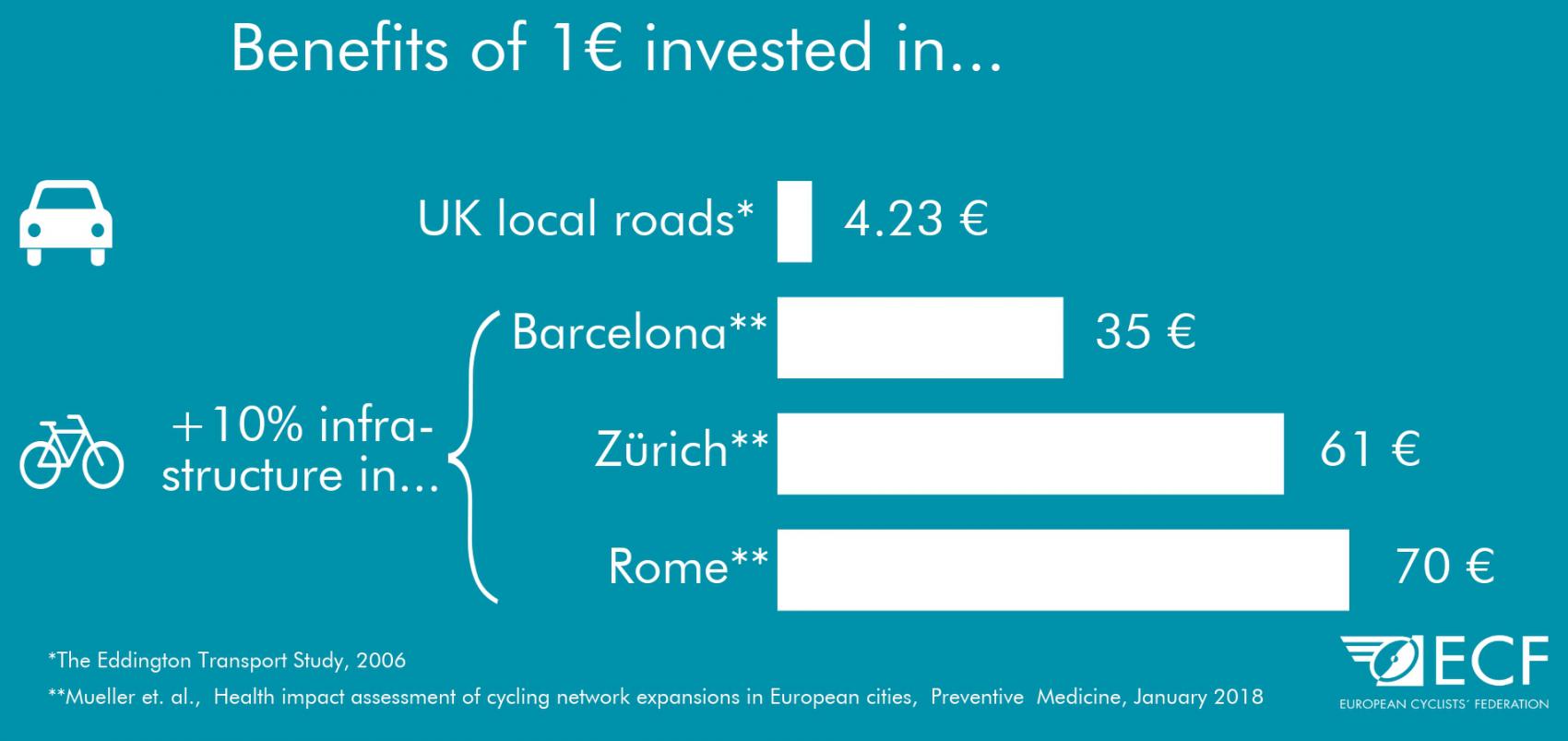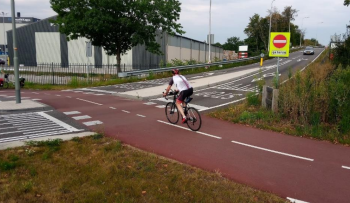
European Cities Could Avoid up to 10,000 Premature Deaths by Expanding Cycling Networks
A study led by researchers from the Barcelona Institute for Global Health (ISGlobal) has found that expanding designated cycling networks in cities could provide considerable health and economic benefits, with a rate of return of up to 70 € for every euro invested.
The analysis – part of European Commission funded Physical Activity through Sustainable Transport Approaches (PASTA) project - of data from 167 European cities suggests that the length of cycling infrastructures is associated with a cycling mode share of up to 24.7%, in which 1 in every 4 citizens would choose the bicycle for their daily commuting. The study, published in Preventive Medicine, estimates that if all the assessed cities achieved a 24.7% bicycle mode share, over 10,000 premature deaths could be avoided annually.
“This is the first study evaluating the potential associations between cycling network length, mode share and associated health impacts across European cities”, states Natalie Mueller, ISGlobal researcher and first author of the paper. The health impact assessment conducted showed that a routine shift in the transport mode to cycling is positive for health due to the associated increase in physical activity, “whose benefits outweigh detrimental effects of air pollution and traffic incidents”, adds Mueller.
 The researchers also performed an economic analysis to compare the costs of increasing cycling networks with the estimated economic benefits of avoided premature mortality. Results show that the best cost-benefits ratios would be met in a scenario of a 10% increase in the cycling network, in which the ratio of benefits per euro spent would be up to 70 to 1 in the case of Rome, 62 to 1 in the case of Zurich and 35 to 1 in the case of Barcelona over a time horizon of 30 years.
The researchers also performed an economic analysis to compare the costs of increasing cycling networks with the estimated economic benefits of avoided premature mortality. Results show that the best cost-benefits ratios would be met in a scenario of a 10% increase in the cycling network, in which the ratio of benefits per euro spent would be up to 70 to 1 in the case of Rome, 62 to 1 in the case of Zurich and 35 to 1 in the case of Barcelona over a time horizon of 30 years.
According to the study, especially cities with a currently low cycling mode share (such as Rome, Barcelona and London), have great potential to increase the daily use of the bicycle just by expanding their cycling networks. “Already a 10% increase in cycling infrastructure, which we perceive as an achievable policy for city governments, most likely provides considerable health and economic benefits”, states Mark Nieuwenhuijsen, coordinator of the Urban Planning, Environment and Health Initiative of ISGlobal and last author of the study.
The results of the study are very much in line with ECF's work on quantifying the economic benefits of cycling at the European level, which has also identified public health improvements as the largest contributor to the overall benefits of cycling in the EU. ECF Health Policy Officer Randy Rzewnicki said: “This is a very high-quality study of 167 cities done by a top rated team of researchers collaborating across Europe. And it is published in a prestigious journal well known for the quality and importance of research publications. At ECF we look forward to adding this important piece of work to the arguments we can present to advocate more and safer cycling conditions." He noted that ECF has worked with a several of the authors of this study.
ISGlobal - Barcelona Institute for Global Health Press Release
Full article: Mueller et.al, on behalf of the PASTA Consortium: Health impact assessment of cycling network expansions in European cities. Preventive Medicine, January 2018, doi.org/10.1016/j.ypmed.2017.12.011
Regions:
Contact the author
Recent news!
Contact Us
Avenue des Arts, 7-8
Postal address: Rue de la Charité, 22
1210 Brussels, Belgium









